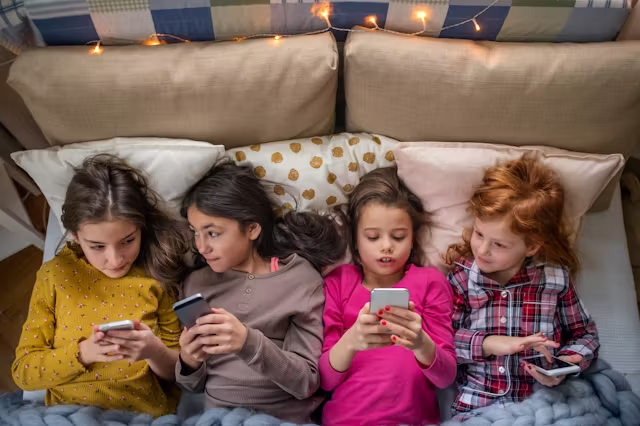As a society, we often view childhood sleepovers as harmless rites of passage—opportunities for children to bond with friends, gain independence, and create lasting memories. Parents frequently feel pressured to allow these overnight visits, viewing them as normal parts of growing up. However, from a psychological perspective, sleepovers present several underappreciated risks that deserve careful consideration.
The Vulnerability Factor
When children sleep away from home, they enter environments where normal protective structures are absent. Parents cannot monitor interactions, intervene in conflicts, or ensure their child’s emotional and physical safety. This vulnerability is particularly concerning given that children often lack the emotional maturity to navigate complex social situations or advocate for themselves when uncomfortable.
Research in developmental psychology shows that children’s ability to assess risk and make sound judgments is still developing well into adolescence. In sleepover settings, peer pressure can intensify, leading children to participate in activities they might otherwise avoid—from watching inappropriate content to experimenting with substances or engaging in risky behaviors.
Supervision Gaps and Boundary Issues
Even well-intentioned host families may not provide adequate supervision. Different families have varying rules, values, and levels of attentiveness. What seems like harmless fun to one family might cross important boundaries for another. Children may be exposed to content, conversations, or activities that conflict with their family’s values or exceed their developmental readiness.
Additionally, sleepovers often involve reduced adult supervision during late-night hours when children are most likely to engage in risky behaviors or when predatory individuals might exploit opportunities for inappropriate contact.
The Trauma of Negative Experiences
When negative experiences occur during sleepovers—bullying, exclusion, inappropriate touching, or exposure to disturbing content—the impact can be particularly severe. Being away from the safety and comfort of home can amplify trauma responses. Children may feel trapped, unable to leave the situation or seek help from their parents.
These experiences can create lasting psychological impacts, including anxiety around social situations, difficulty trusting others, or reluctance to engage in age-appropriate social activities. The sleep component adds another layer of vulnerability, as children are literally in their most defenseless state.
Sleep Disruption and Its Consequences
From a purely physiological standpoint, sleepovers typically result in significant sleep deprivation. Children often stay awake far later than usual, sleep in unfamiliar environments, and experience disrupted sleep cycles. Research consistently demonstrates that adequate sleep is crucial for children’s emotional regulation, academic performance, and overall mental health.
Sleep-deprived children are more prone to emotional outbursts, poor decision-making, and increased anxiety. They may struggle academically and socially in the days following a sleepover, creating cascading effects on their well-being.
Alternative Approaches
Rather than dismissing sleepovers entirely, parents can consider modified approaches that preserve social benefits while reducing risks. “Late-overs” where children participate in evening activities but return home to sleep can provide social interaction without overnight vulnerability. Hosting sleepovers at your own home allows for better supervision while still offering children special experiences.
When deciding whether to allow sleepovers, parents should trust their instincts, thoroughly know the host family, and ensure their children feel empowered to call for pickup at any time without consequences. Open communication before and after social events helps children process experiences and identify any concerning situations.
Building Resilience Without Unnecessary Risk
The goal isn’t to shelter children from all social experiences but to provide age-appropriate challenges that build confidence and social skills without exposing them to unnecessary risks. Many of the positive aspects of sleepovers—friendship building, independence, and fun experiences—can be achieved through supervised daytime activities, family-hosted events, and gradual increases in independence that don’t involve overnight separation from protective structures.
Parents who choose to limit or avoid sleepovers aren’t being overprotective; they’re making informed decisions based on legitimate concerns about their children’s safety and well-being. In our current cultural moment, where awareness of childhood trauma and its long-term impacts continues to grow, taking a cautious approach to sleepovers represents thoughtful parenting rather than paranoia.
The temporary disappointment a child might feel from missing a sleepover pales in comparison to the potential long-term consequences of a traumatic overnight experience. Protecting childhood innocence and ensuring children’s safety should always take precedence over social expectations or the fear of seeming overprotective.


